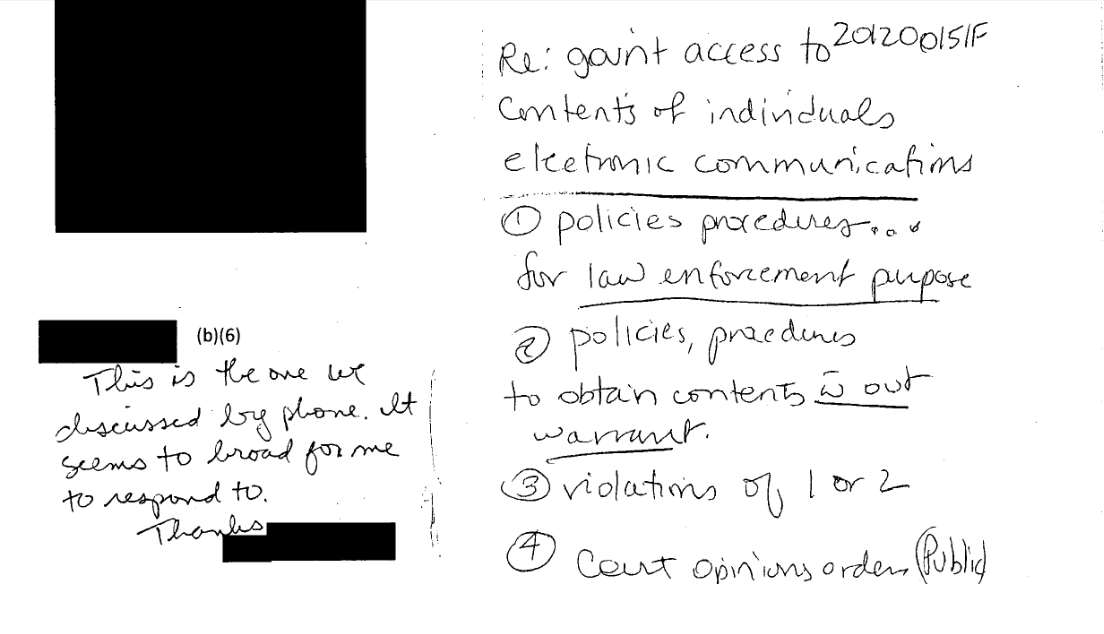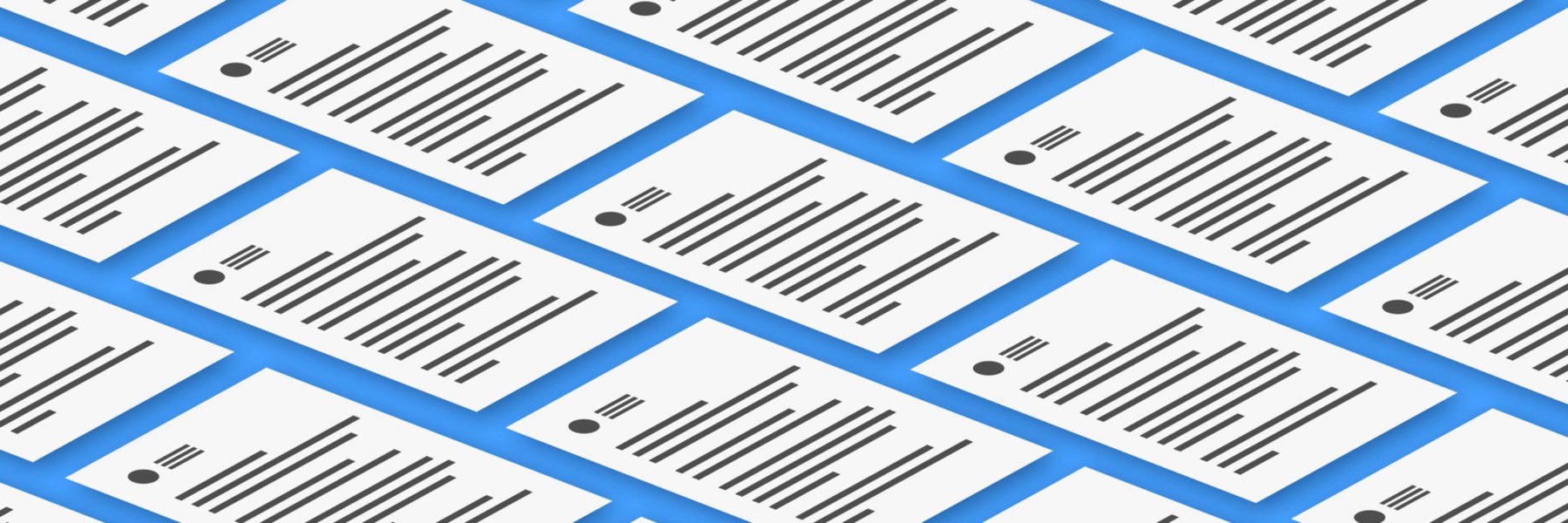Last year, in response to a FOIA request from the ACLU regarding the Obama Administration’s policy regarding intercepting cell phone text messages, the Justice Department released 15 pages of documents - all of which had been completely redacted by b(7) and b(5) exemptions.
In response, MuckRock’s Michael Morisy requested the processing files for the case, which just came in earlier this week. Unsurprisingly, the documents are themselves heavily redacted, but the notes that were left in tell the fascinating story of FOIA officers who seem to be genuinely struggling with what - if anything - they could actually release.

Processing files like these help us to better understand how something like 15 pages of completely redacted documents happen - when your job is to release the unreleasable, things are going to get Kafka-esque, and quick.
Read the files on the request page or embedded below, and as always, if you find anything of interest, let us know at info@muckrock.com.
Image via Wikimedia Commons




